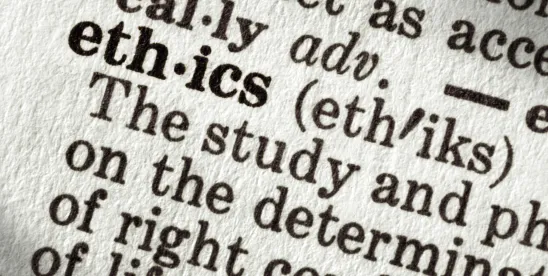Lawyers have long been largely immune from RICO liability, whether their client is engaged in nefarious behavior running afoul of the RICO Act or the lawyers themselves commit independent fraudulent acts. RICO liability is traditionally reserved for the “operation and management” of an enterprise engaged in prohibited behavior, and the provision of “legal services” has been the silver bullet for lawyers accused of RICO violations for the past three decades. In practice, lawyers advising racketeering organizations remain immune from criminal or civil RICO liability even if the racketeering organization follows the lawyer’s legal advice regarding the racketeering scheme. As long as the lawyer is not directly engaged in the “operation or management” of the enterprise, RICO liability falls to the racketeering client alone.
A recent lawsuit filed against a national plaintiffs’ asbestos firm in the United States District Court for the Northern District of Illinois seeks to sidestep the legal services defense and hold the law firm and its employees liable for conduct prohibited by the Rico statute. The lawsuit alleges that instead of advising a client engaged in RICOprohibited conduct, the firm itself engaged in operational or management conduct violating the statute. This suit could have wide-ranging implications for lawyers representing clients in pattern litigation.
Asbestos litigation has historically relied heavily on a plaintiff’s identification of a product containing asbestos. The more detailed and accurately the plaintiff describes an exposure to a particular asbestos-containing product, the more value the claim likely holds in settlement negotiations with the makers or distributors of that product. In addition, the more solvent defendants identified and named in a lawsuit, the higher the amount of money tends to be available to compensate the plaintiff. Thus, any plaintiff impacted is incentivized to identify as many asbestos defendants’ products as possible to leverage the biggest payday. The lawsuit alleges that the temptation for the plaintiffs’ law firm, which is paid a percentage of each recovery, to help the plaintiffs identify asbestos-containing products linked to named solvent defendants is exponentially increased.
So, in flipping the traditional RICO claims against lawyers upside down, the pending lawsuit in the Northern District of Illinois alleges that the law firm, rather than its clients, engaged in a racketeering enterprise to defraud asbestos defendants out of inflated settlements to increase the law firm’s profits. In particular, the complaint outlines a scheme wherein the law firm and its employees coached clients only to describe products from solvent, named defendants to minimize exposure to bankrupt defendants and hide claims against bankruptcy trusts to inflate the value of a widespread number of cases. These are serious allegations and put at issue the attorney-client relationship between these lawyers and their clients.
Lawyers would be wise to keep tabs on this case as it progresses. It could open the door to more RICO suits against law firms – especially those representing clients in pattern litigation or other mass tort litigation. The discovery required in such cases will potentially dig deep into files, memoranda, and communications long believed securely cloaked under attorney-client privilege and work-product doctrine protections. And if those communications are put “at issue” in the litigation, this privilege may be waived. At a minimum, this case is likely to provide further guidance on the bounds of the longstanding “legal advice” protection to the “operation and management” standard in determining RICO liability.



 />i
/>i

